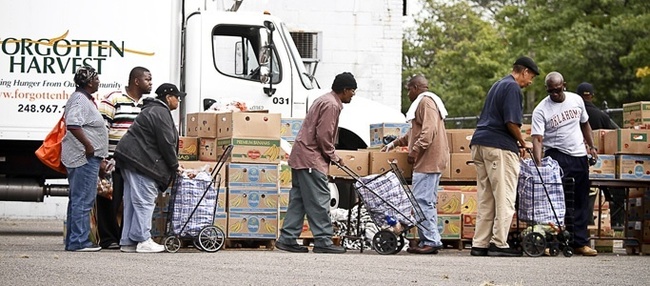Entrenched poverty

America is a rich nation. But many of its citizens live in deeply entrenched poverty (46 million, with 20.6 million in extreme poverty), and the country hasn’t made much progress for decades. Why is that?
Peter Edelman has a few theories about this which he lays out in So Rich, So Poor: Why it’s So Hard to End Poverty in America. A former advisor to President Kennedy, Edelman witnessed the early decades of the war on poverty up close. The book provides a very clear, factual, and eloquent narrative analysis of
the twists and turns of the story of American poverty and poverty
policy since the 1960s.
Here you will find a comprehensible analysis of the ways in which economic change, including outsourcing of jobs and the elimination of many low paid jobs, has made even more difficult the task of addressing
poverty. It is a familiar story to all of us who have lived through
the events since the 1960s, but it is also clear that policy choices were
possible throughout that time to address poverty, and all too often
those choices were not made.
What the book doesn’t provide with as much clarity as I would like is answers to the “why” questions: why has the conservative side of American politics been so hostile to the poor, and why have they been so successful?
Edelman’s view of the future comes down to this:
Inner city revitalization is important, but it must be an integrated part of a larger regional development strategy. Our goal should be to make it possible for people to live wherever they want in the metropolitan area and find jobs throughout the region, well also improving the livability of the neighborhoods where they now live. The key idea is that people should have real choices, and creating real choices means pursuing multiple policies and strategies simultaneously. This is the strategic frame. Moving forward is necessarily a long-term project. (131)
It is apparent that Edelman’s prescription here has to do with ending racial segregation. It is residential segregation which compounds the effects
of inner-city poverty, and makes these problems so intractable. Residential segregation leads to many other forms of social and economic disadvantage: lack of access to jobs, poor health, failing schools, and bad environmental conditions, and these problems are often mutually reinforcing.
When you consider this vision in relation to the city where I live, metro Detroit, it makes a lot of sense. But to address these problems it will take real political will, exerted over several decades. And so far the course of change in our politics has been in the opposite direction.